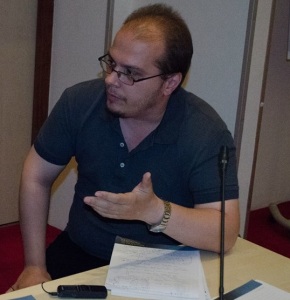 A woman holding a toddler in her arms falls in a ditch while trying to recover her beer bottle from the ground. She tries to get back up, only to fall on top of her child. Moments later, she leaves her two children (one of whom is now holding his mother’s bottle) on the side of the road to argue incoherently with those filming her. The next day, she would explain her behaviour by saying she had been drinking some liquor and wine on an empty stomach after work.
A woman holding a toddler in her arms falls in a ditch while trying to recover her beer bottle from the ground. She tries to get back up, only to fall on top of her child. Moments later, she leaves her two children (one of whom is now holding his mother’s bottle) on the side of the road to argue incoherently with those filming her. The next day, she would explain her behaviour by saying she had been drinking some liquor and wine on an empty stomach after work.
This is just a more notable episode—it even made it into the British media—in the endless story of alcohol related harm in Romania. With an average consumption level of 14.4 litres of pure alcohol per year for each adult—21 litres if you count out the abstainers—Romania is the fifth largest drinker in the world and the second largest in the EU, according to the latest data from the World Health Organization.
The health consequences are dramatic: the country has the highest death rate from liver cirrhosis (65 for every 100 000 people) among the 28 EU member states, and a proportion of deaths attributable to alcohol (8.9%) that is only surpassed by the Baltic countries.
Those of us who over the decades have resigned themselves to hearing about the neglect, violence, road accidents, and diseases caused by high alcohol consumption should know, however, that there are solutions to the problem. The level of alcohol consumption isn’t God or nature given and it can be reduced through the right policies, said Dr Jürgen Rehm, from the University of Toronto, at the recent European Alcohol Policy conference in Brussels. Italy has reduced its alcohol consumption level by two thirds over the last 40 years, making it the lowest in the EU at the moment; this should be an inspiration for countries that are determined to tackle alcohol related harm.
Increasing prices, banning marketing, and limiting availability are all policies that have proved effective in reducing alcohol consumption, says Dr Gauden Galea, director of the Division of Non-communicable Diseases and Life-course for WHO Europe. Romania has ticked off interventions in all these areas: excise tax is imposed on beer, wine, and spirits; there’s a legal minimum age for buying alcohol; and zero tolerance for drinking and driving. However, Galea notes that according to data in the WHO country profile, these apparently strong policies had little effect—in fact, the average person’s alcohol consumption has increased since the previous assessment.
I have often observed that two litre bottles of certain beer brands are sold in supermarkets for as little as one euro, which suggests to Galea that companies prefer to absorb the cost of excise tax and not pass it on to consumers. Furthermore, marketing that is targeted at young men with depictions of camaraderie, adventure, and sexual conquest is widespread; drinks are available in bars and shops close to schools, and I’ve often witnessed owners ignore their clients’ age; and, although random breath testing is being performed to detect drivers under the influence, alcohol can still be purchased from petrol stations, and Romania’s proportion of road traffic accidents attributable to drinking is among the highest in the EU.
Obviously, Romania’s current alcohol policies need to be strengthened and their enforcement improved. But that’s easier said than done. The success of these particular policies was shown to be linked with a government’s effectiveness, and Romania’s government actually ranks as the lowest in the EU on the World Bank’s government effectiveness index.
This weak government is under no substantial public pressure to act either. The College of Physicians, as well as scientific societies, are more concerned about their members’ interests; there are only a few non-governmental organisations active in this area and they are partly financed by the industry, which means that their actions are not impartial; as for the media, it usually just points out the immediate culprits—drunken parents or drivers—and misses the bigger picture. Whether they are drinkers or abstainers, it looks as if ordinary Romanians have to fend for themselves—no one else will.
Mihail Călin, MD, is a Romanian health and medical journalist.
Competing interests: I declare that I have read and understood BMJ policy on declaration of interests and I have no relevant interests to declare.
You can follow him on Twitter @MihCalin